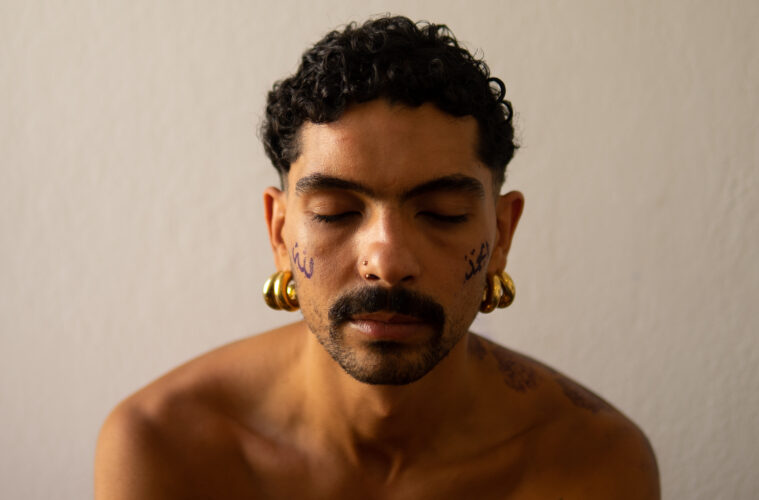Photography by Moustafa Kridly and Kmar Douagi
Artwork and words by Moustafa Kridly
Project portrayed by Amine
This piece is part of the “Sana wara Sana” issue
“Washm El Haq” delves into themes of intimacy, spirituality, and heritage, shedding light on religious traditions that many people in the queer community find solace in. It draws inspiration from graphic objects with religious connotations—Talismans—commonly found in the Arab world, adorning homes, cars, shops, and even streets. The project transforms these symbolic elements into body marks, giving them a new dimension. This transformation bridges the gap between objects and the body, translating the talisman’s protective essence onto the self.
The documentation of talismans found in Lebanon and in the homes of religious queer individuals sheds light on a generation reclaiming religious language and redefining it on their own terms. The application of talismans on the skin, references the long history of religious tattoo markings in the Arab-Muslim world. But the talisman, here, represents not just a recovery of heritage, but also an acceptance of its role in our intimacy, reclaiming our bodies, and surrendering our spirits.











Moustafa Kridly is a Beirut-born visual artist and designer based in Paris. Their work explores the intersections of identity, memory, and cultural heritage, drawing deeply from their background as both a tattoo artist and architect.
They are particularly inspired by their personal experiences with queerness and migration, creating pieces that challenge dominant perspectives while cultivating emotional and intimate connections. Their art has been featured in residencies but most importantly they have found a lasting home on the bodies of many through tattooing.
For Moustafa, art is a journey of storytelling, each piece a fragment of a broader exploration of identity, belief, and emotion.

